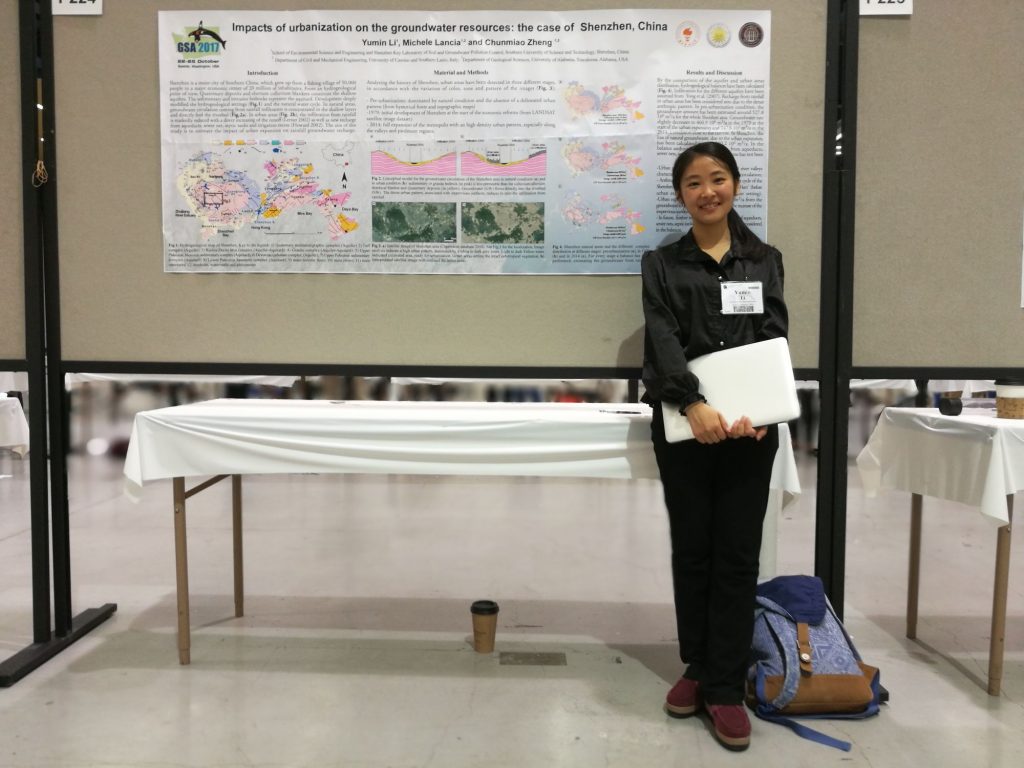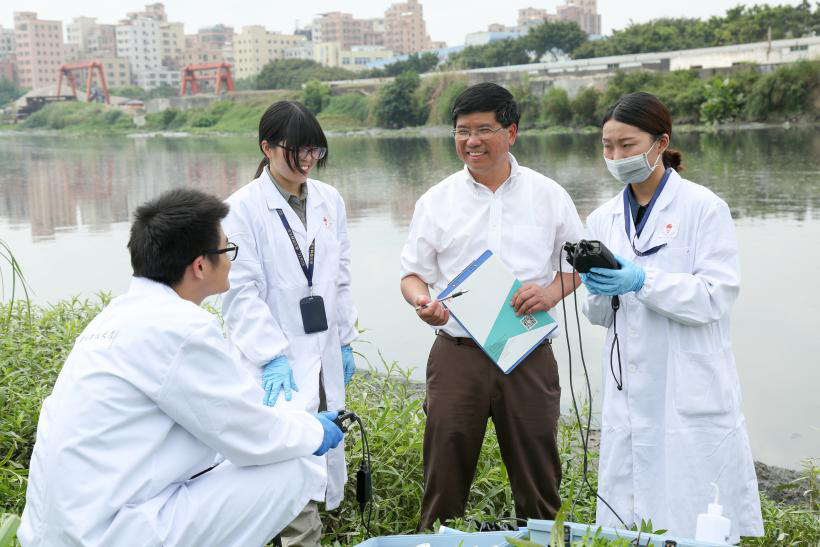“The art of education is not the ability to teach, but the inspiration, the awakening and the encouragement,” once said a famous German educator. An advisor is a life guide, but also and most importantly an academic leader.
SUSTech’s Dual Advisory System is one of the the university’s undergraduate education features, which is important for individual development.
An old Chinese saying goes, “It takes ten years to grow trees but a hundred years to rear people”. This article marks the first in a series entitled “The Story of my RC advisor”.
Standing on the shoulders of academic giants
Li Yumin, a junior year student from the School of Environmental Science and Engineering at SUSTech, told us about her own experience with her RC Advisor, and she could barely hide her excitement.
“When I saw that it would be Professor Zheng Chunmiao who will tutor me, I was so happy that I accidentally banged my watch and broke it!”
Professor Zheng Chunmiao is the leading professor and dean of the School of Environmental Science and Engineering, as well as a recipient of the National Overseas Outstanding Young Cooperative Fund. But at SUSTech, he and all other professors play two other roles as well as professor – academic advisor and RC advisor.
Currently in most of China’s colleges and universities, undergraduate students do not have an advisor. At SUSTech however things are different. SUSTech’s core feature of having a “Dual Advisory System” allows students to choose a academic advisor and RC advisor. that will accompany them throughout their time here and even beyond, for academic purposes and also personal growth guidance.
Zheng Chunmiao is Li Yumin’s academic advisor, he guides her through her four years’ study and research according to her own interests and direction. The academic advisor is therefore of significant importance, especially during the undergraduate period for the young students’ who might not be certain yet of which direction they want to take.
How to select an ideal RC advisor
In 2015, Li Yumin from Changsha, Hunan, was admitted to SUSTech. She felt “daunted” by the famous professors’ names who were regularly publishing leading studies in top scientific journals. A year later, she is talking regularly with those very professors and taking notes in her notebook. The “Dual Advisory System” changes the role and the image of professors, from the academic big names to her life mentors.
Choosing a tutor is not a simple matter, first of all you need to know what you want to learn, what you are good at. Then you need to understand each professors’ research direction, and their own ability and interest to make a good choice.
Getting one of these top professors to tutor you is a big deal for the students, for SUSTech has already established a first-class faculty. Professors of SUSTech include many academicians, as well as many professors who have studied or worked overseas among the top 100 universities.
The system is based on a two-way choice though. The students choose a professor, but the professors also choose students, and that means the students must show their excellent academic potential and good communication skills.
“I like mathematics and environmental studies that focus on the combination of theory and practice, so I chose hydrological research, because it requires modeling, calculations, and so on.” Li Yumin explains.
In order to obtain Professor Zheng Chunmiao as her academic advisor, Li carefully prepared her resume, described her learning process, research interests and social activities. Her resume said she had “won scholarships”, had a “rich literacy level” and that she “longed to be a student assistant”, and it was on these three keywords that she had pinned all her hopes.
How my advisor guides me ?
Li Yumin lost no time in learning lessons from Professor Zheng. She joined his group and participated in the Shenzhen City groundwater monitor as well as other related research projects.
In 2017, she became a part of the core project supported by the Guangdong Provincial Climbing Plan Big Data Center Project, and was involved in the development of students’ evaluation system. In October of this year, she went to Seattle, USA, to participate in the annual meeting of the American Geological Society (GSA2017), and even presented a topic on the “Impacts of urbanization on groundwater resources”.

“SUSTech advocated a strong focus on interdisciplinary research, and the students here have a very extensive and deep knowledge foundation” Professor Zheng Chunmiao repeatedly stressed. He worked at the Water Resources Center in Peking University where he was at the Environmental College. At SUSTech, he also closely collaborates with Professor Yao Xin, the chair of the Department of Computer Science, to work on computer applications for environment science.
“When I talked with Professor Zheng, he told me he also found that students are well versed in multiple subjects, and often they don’t know which ones they are best at. For this reason, Environmental Science and Engineering, which combines theory and practice, and many other disciplines sees a high demand from undergraduates.” explain Li Yumin.
SUSTech’s Dual Advisory System provides students with a broad platform and high quality resources. But in order to get the academic instructors they want, they need to work very hard.
Professor Zheng says: “I strongly encourage Li Yumin to familiarize herself with more independent learning methods. I’m happy to answer any questions my students have, but at the end of the day, I can only show them the way, they have to take it from there themselves. ” He said that students who can enjoy being guided by a good teacher is a lucky thing. “The advisor can help his student get involved in research, but what is most important is that students have a clear plan for their future, so as to make better use of the resources at his disposal.”
The time at university is a critical period for young people, “they not only need to study their subject in depth, but also need a certain breadth to their learning.” In the field of scientific research, young people can gain this breadth in the diversity of interdisciplinary knowledge, focusing not only the technical knowledge itself, but also on a broader vision based on innovation and life.”

Joining a research group to practice my knowledge
Choosing an advisor has similarities to joining a research group. Following the protocol of group meetings, the group members start by introducing the progress made in their subject, then their follow-up work, and finally the principles involved and applied to their methods. In the research group, undergraduates accumulate similar experience as graduate students in most other universities. Professor Zheng explains complex questions in a simple way, so that undergraduates can easily understand.
During the 2017 summer semester, Li Yumin and eight other environmental undergraduate students were led by Professor Zheng to Washington, DC for a 10-day field trip revolving around soil and groundwater pollution prevention and control, during which they visited many important sites and gained much insight into the issue. The opportunity to go to the United States to study the humanities and natural ecology, soil and groundwater pollution prevention and control and other aspects of their daily studies was a great experience and offered valuable insight.
When talking about her academic advisor Li Yumin is full of reverence and gratitude, but she also slightly “regrets” to say: “Even if Professor Zheng is usually very friendly, in his academic research he is always very serious. I’ve heard that as a RC advisor, Professor Zheng takes his students climbing, hiking, and so on. I wish he would take me!”
The Dual Advisory System not only makes the students of SUSTech benefit both in life and at university, it also allows the students to have a window into the professors’ lives, understand the lives of the faculty, and let the professors and students inspire each other and teach each other.
Proofread ByWang Ziyi
Photo By